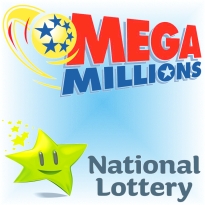 Ireland’s government has announced it will hold a competition for a 20-year license to run the National Lottery. The An Post National Lottery Company has run the lottery since 2001, and the government recently extended its current license to June 2013 to give potential new applicants time to get a haircut and brush up on their small talk. The cash-strapped Irish state believes it can earn itself a pretty penny – somewhere between €400-600m – in the form of an up-front payment for a two-decade contract. The government claims to have already received inquiries from several parties, including GTech, the Tatts Group and UK National Lottery operator Camelot.
Ireland’s government has announced it will hold a competition for a 20-year license to run the National Lottery. The An Post National Lottery Company has run the lottery since 2001, and the government recently extended its current license to June 2013 to give potential new applicants time to get a haircut and brush up on their small talk. The cash-strapped Irish state believes it can earn itself a pretty penny – somewhere between €400-600m – in the form of an up-front payment for a two-decade contract. The government claims to have already received inquiries from several parties, including GTech, the Tatts Group and UK National Lottery operator Camelot.
In America, the hype surrounding the recent Mega Millions $640m jackpot has morphed into melodrama. One of the three winning tickets was sold in Maryland, although its ownership is a matter of some debate. A Haitian immigrant named Mirlande Wilson, who belonged to a lottery pool with her co-workers at McDonald’s, claims to have the winning ticket. But Wilson also claims that she bought the winner with her own money, rather than the tickets she was tasked with buying for the group. Naturally, her co-workers are crying ‘bullshit’ and that she’s just trying to avoid sharing the wealth. The situation directly parallels the recent snafu surrounding Americo Lopes’ failed attempt to cheat his co-workers out of their rightful millions.
The scenes of thousands of Nevada residents queued up along the California border to purchase lottery tickets has got some Nevadans questioning why their state allows every conceivable form of gambling except lotteries. Gov. Brian Sandoval’s spokesperson told the Las Vegas Sun that it’s “not appropriate for the state to compete with our number one industry” and MGM Resorts CEO Jim Murren told KSNV TV that he’s also opposed to lotteries. (Hey, weren’t Nevada casinos also opposed to online poker until they suddenly weren’t?) Meanwhile, a California Lottery spokesman claims that store on the Nevada/California border is consistently the top ticket seller in the state. “And it wasn’t close.”
Utah is another state with no lottery, and lottery retailers along the Idaho border are ever so grateful. The Salt Lake Tribune crunched some Idaho Lottery Commission sales figures for 2011, and came to the conclusion that 19.4% of total ticket sales came from lottery retailers along the Utah border. In fact, the top-five ticket sellers are all located along the border. One such retailer told the Trib that “99%” of her ticket sales were to Utah residents. Alexis Daniels said she’d “just like to say thank you to all the people from Utah who come up to buy tickets.” And presumably, Daniels would offer a big shout-out to Utah’s backward politicians for denying their citizens a little harmless fun.